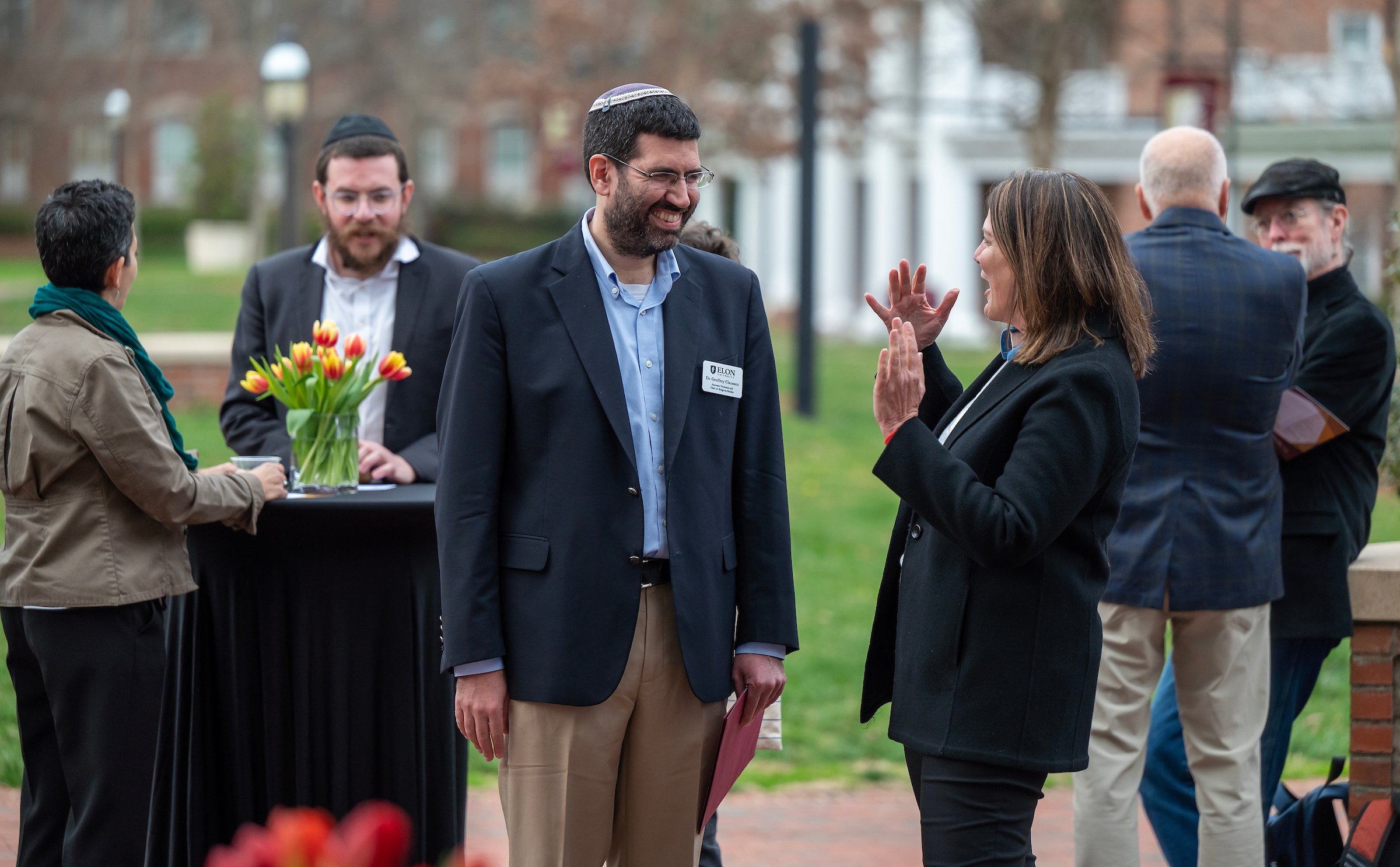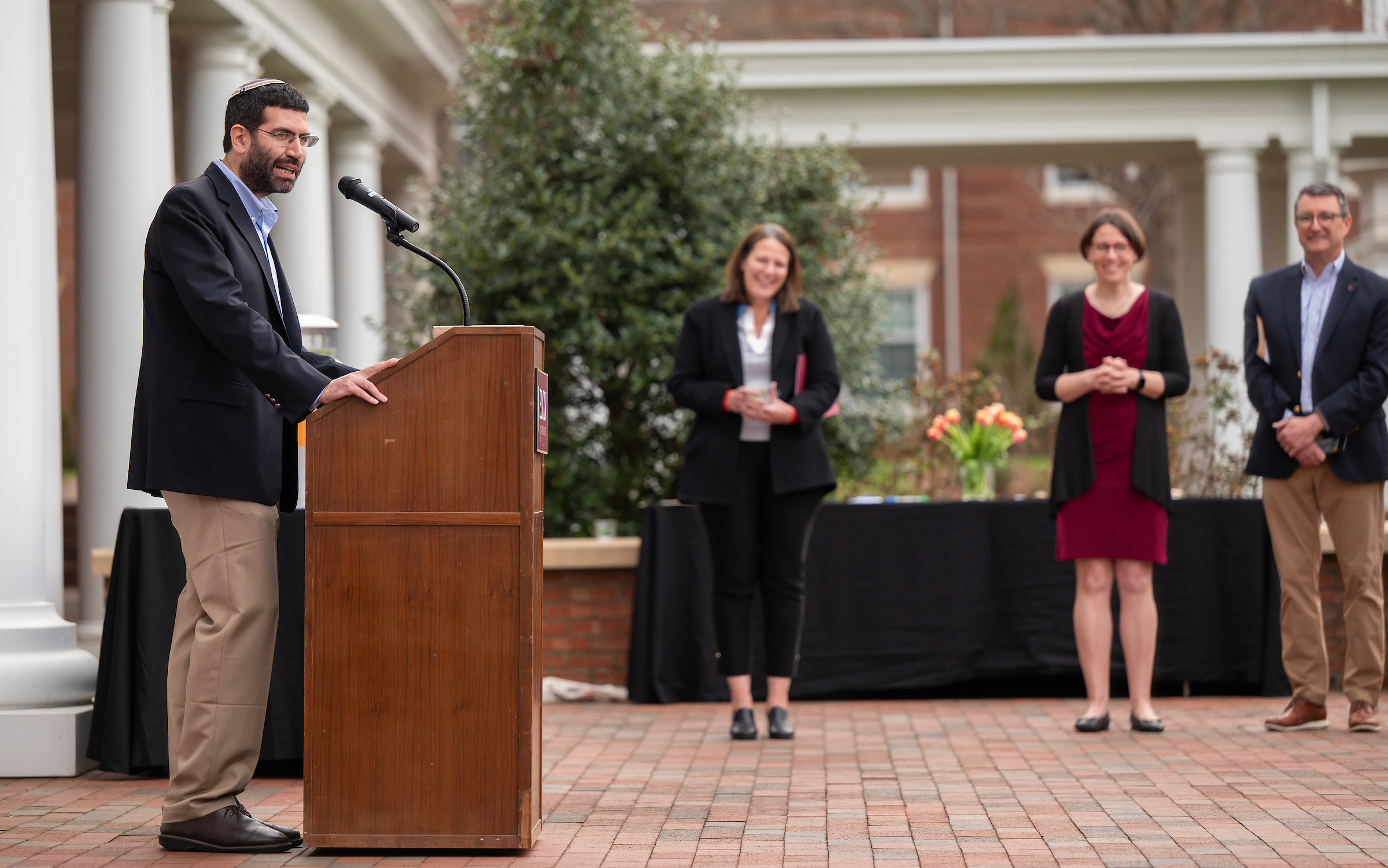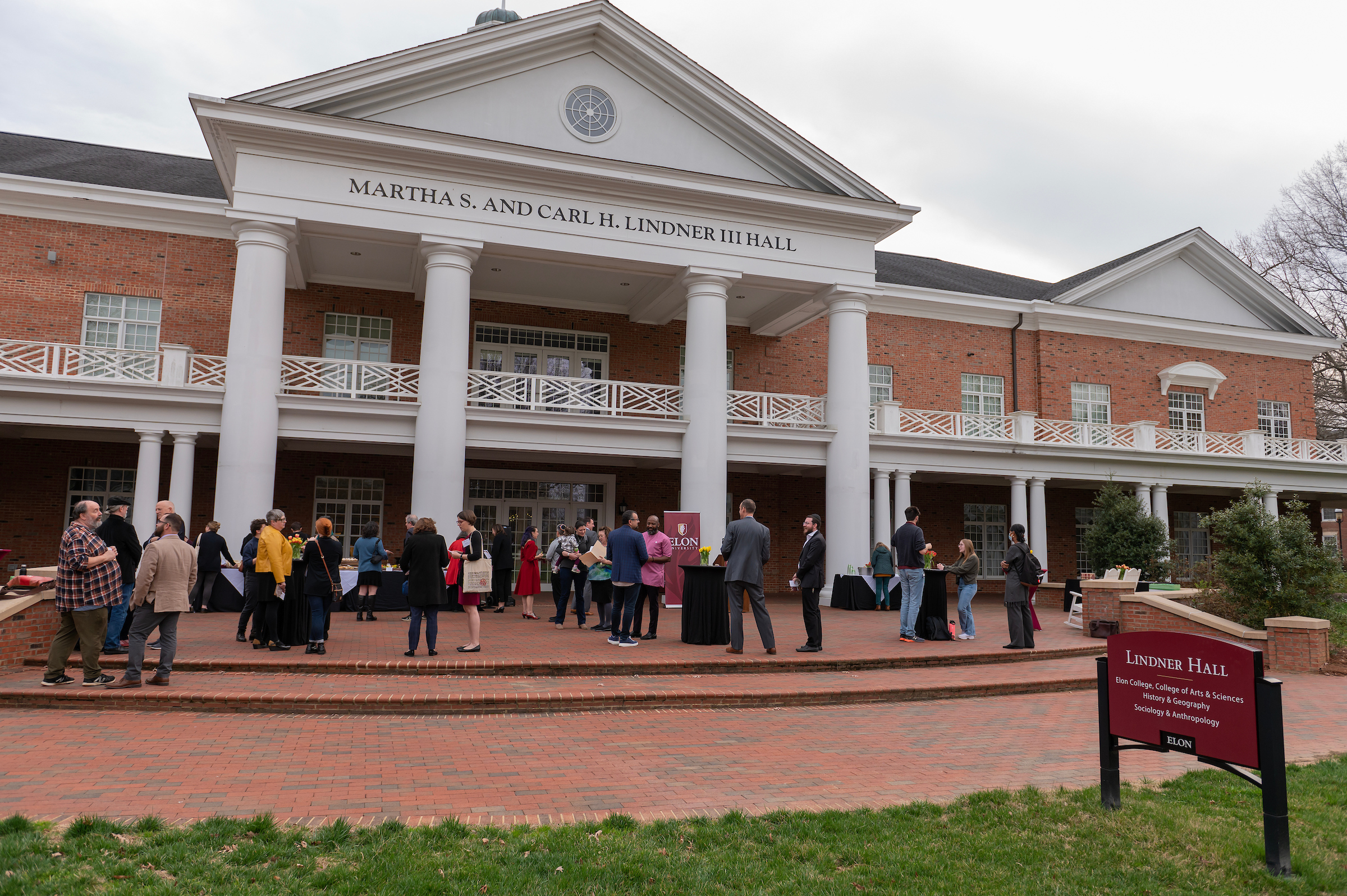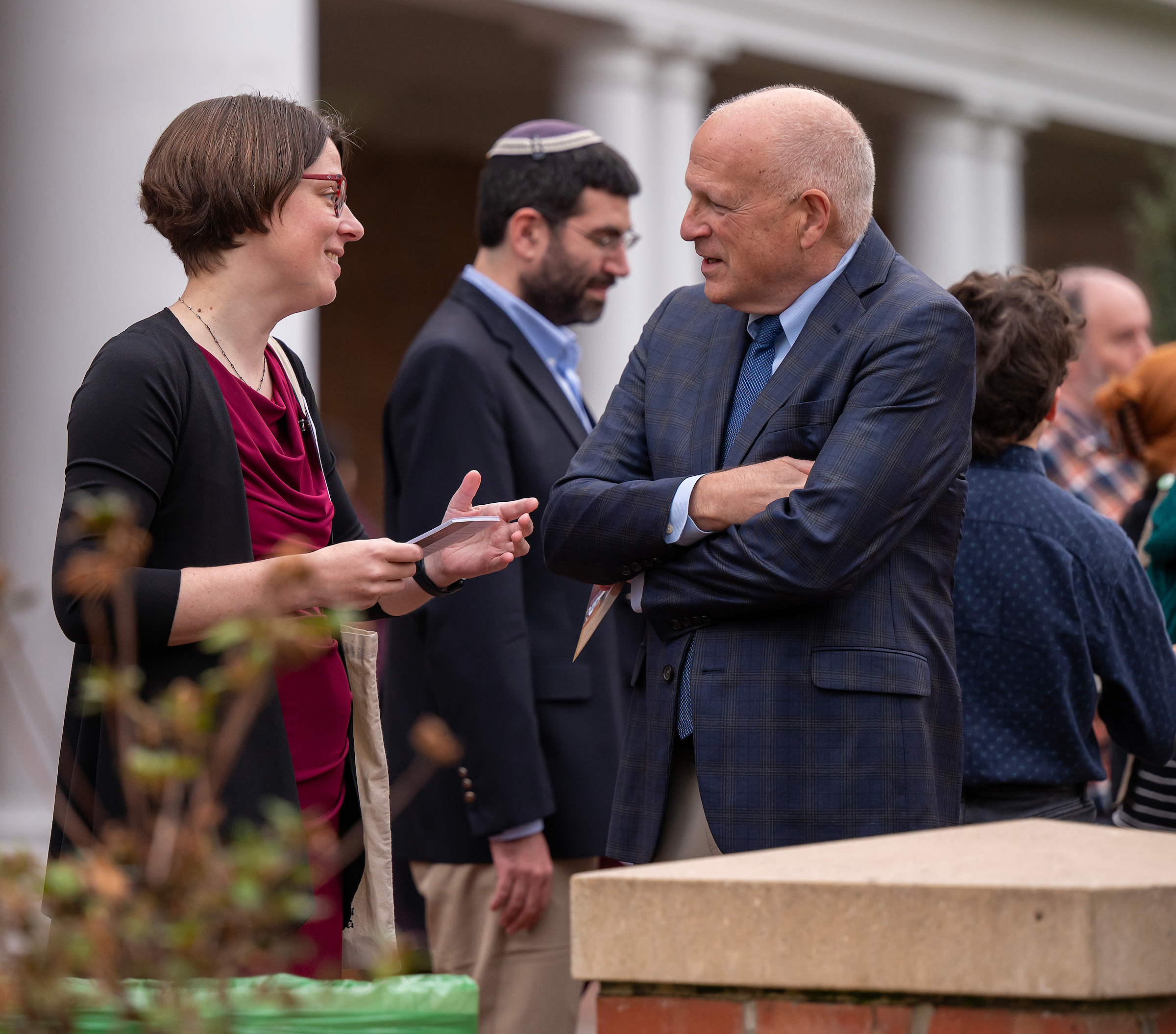An event Wed., March 1, marked the program's first decade and breadth of studies offered to students.
Sharing experiences and reflecting on accomplishments, about 60 members of the campus community gathered Wed., March 1, in front of Lindner Hall to mark the first decade of Elon’s Jewish Studies Program.
In the 10 years since the Jewish Studies Minor launched in the 2012-13 academic year, faculty, staff and students involved have expanded academic scholarship, strengthened multifaith activity and deepened dialogue around topics of faith and identity.

“Celebrating a Decade of Jewish Studies: Education, Engagement and Excellence at Elon” gave voice to those achievements and magnified the efforts of key players in creating new opportunities for Elon students. The program included remarks by Elon University President Connie Ledoux Book, Dean of Elon College, the College of Arts and Sciences Gabie Smith, founding program coordinator Professor of Religious Studies Geoffrey Claussen and current coordinator Associate Professor of History Andrea Sinn.
President Book recounted meetings and discussions around the program when she was a member of faculty, the leadership of President Emeritus Leo Lambert in responding to what Elon’s Jewish families were encouraging, and the generosity of families like Lori and Eric Sklut who endowed a professorship in the program and provided the naming gift to establish Elon’s Sklut Hillel Center.
“The Jewish Studies Program and its scholarship is part of a larger multifaith initiative at Elon, and it has been an exemplar for that work,” Book said. “The Skluts and hundreds of others over the last 10 years formed what we’re celebrating this evening. Through the generosity of our Jewish community to share with us and be our teachers, we’ve learned so much more about history and language and the truth of the past. It’s an exchange that’s improved the quality of life for all of us at Elon.”
Elon’s Jewish Studies program explores the historical and contemporary experience of Jewish people through courses spanning the liberal arts. These studies lead students to consider the distinctive ideas and practices of Jewish communities, the ways in which Jewish ideas have influenced and have been influenced by other civilizations, the conditions under which Jews have been the victims of persecution and the significance of the establishment of the State of Israel in the 20th century.

“One measure of an interdisciplinary program’s success is how interdisciplinary it is,” Smith said. “In addition to religious studies, the Jewish Studies Program includes courses in history, Hebrew, English, philosophy, art history, political science, as well as global studies courses. All of those increase the depth of understanding around Jewish culture and identity.”
The evening’s most powerful tributes came from students enrolled in the program, Faith Minor ’23 and Anna Okum ’25. They described developing deeper pride for and greater understanding of their Jewish identities.
“I came to this university unaware of what it means to be trans and Jewish, I was only aware of my trans identity,” said Minor, who is completing research around the intersection of trans and Jewish identities through history. “I didn’t expect research to take me to a point where I am speaking at conferences and meeting scholars who write about these things. The Jewish Studies Program at Elon has facilitated that wonderfully, with support above and beyond what I could ever expect. I’m comfortable here in the way I’m embraced and loved, and it’s given me a position where I can embrace others starting that journey.”
Many past and present faculty advisory board members attended Wednesday. Along with Sinn as the current program coordinator, the board includes Prof. Boaz Avraham-Katz, Jewish educator in the Department of World Languages and Cultures; Claussen; Evan Gatti, professor of Art History; Lynn Huber, professor of Religious Studies, Baris Kesgin, associate professor of political science and policy studies; Kathy Lyday, professor of English; Kim Shively, associate professor of performing arts; and Hillary Zaken, interim assistant dean of Multifaith Engagement.
Smith praised the excellence of the program’s faculty, calling them “triple hitters” who “teach well, are active in scholarship, and contribute to leadership in service to this institution.”
Sinn and Claussen thanked colleagues for the breadth of courses taught within the minor and the various ways they supported and influenced the program’s growth.

“Our students have learned to think historically, to critique common viewpoints, to research and understand the complexity and diversity of Jewish cultures throughout history … and they’ve thought deeply about the intersectionality” of Jewish identities across nationality, race, gender and sexuality, Claussen said. “It’s inspiring to see the list of courses taught over the last 10 years and the ways they’ve challenged, engaged and enriched our students.”
“We are grateful for the commitment of our teachers, mentors and scholars, as well as our students and collaborators across campus,” Sinn said. “For those who helped establish this program and helped it to grow and flourish, it is a great moment to be able to celebrate together.”



